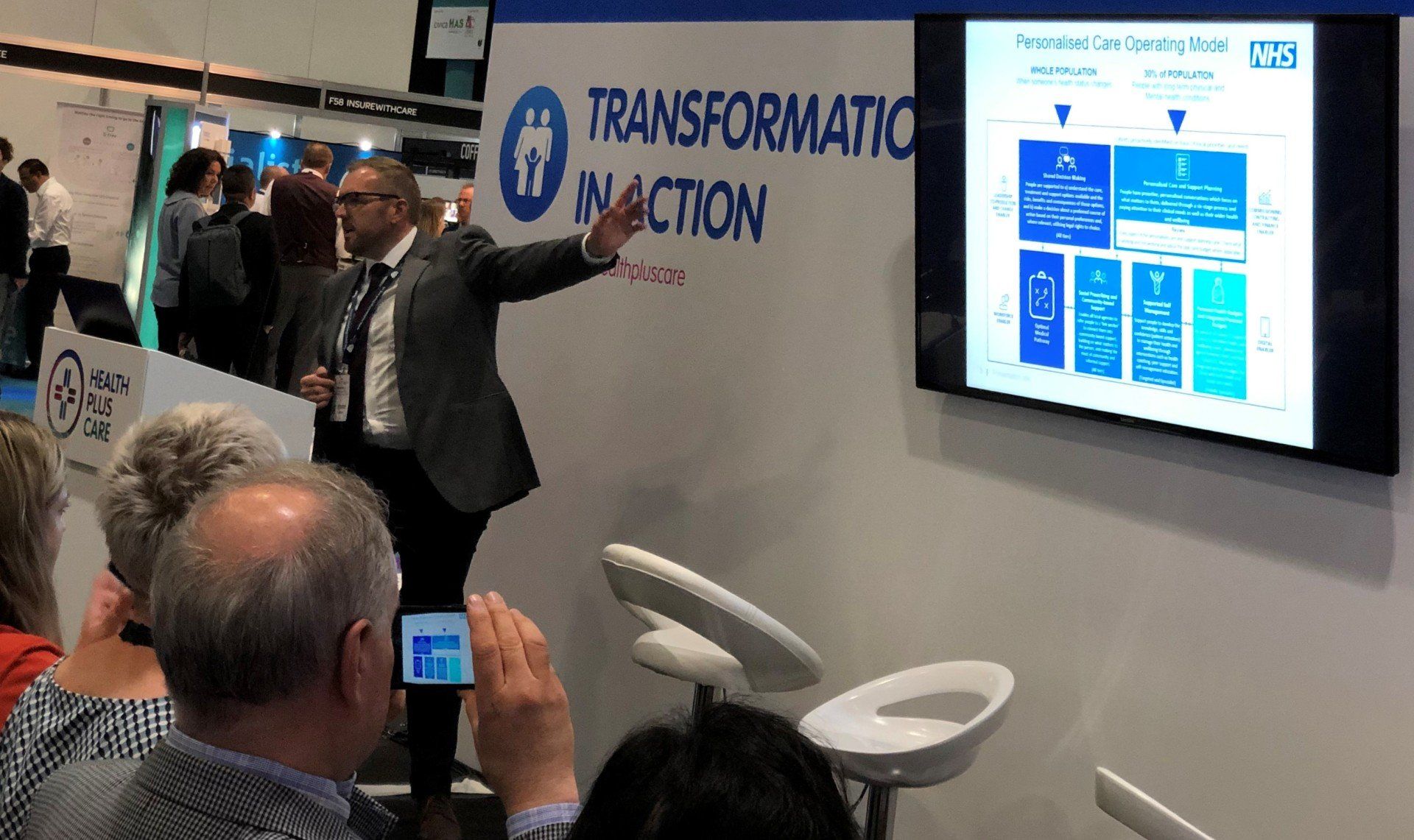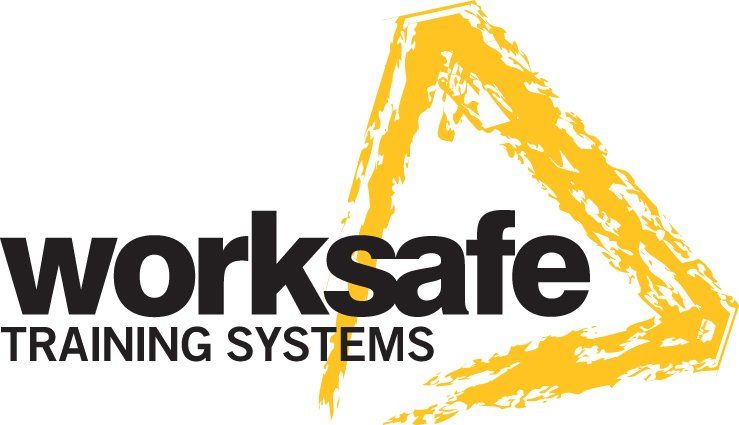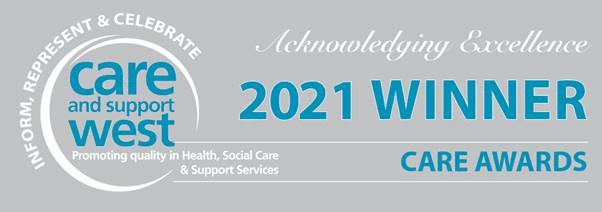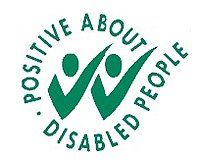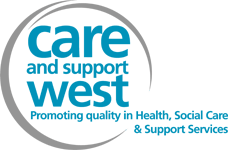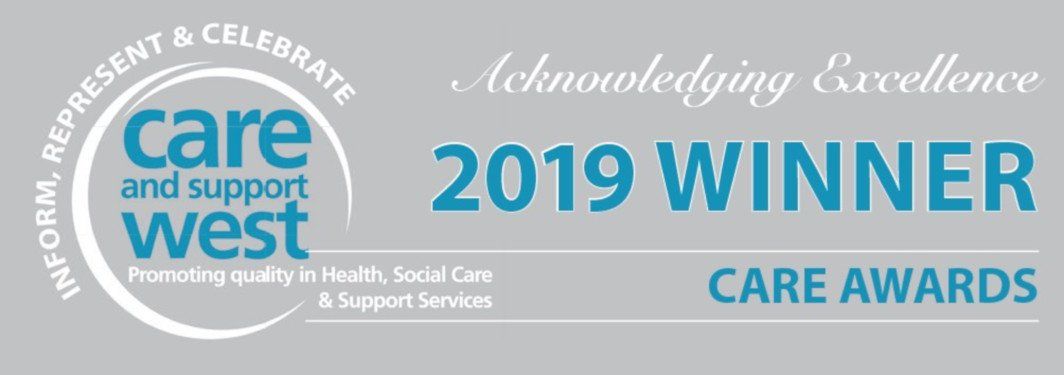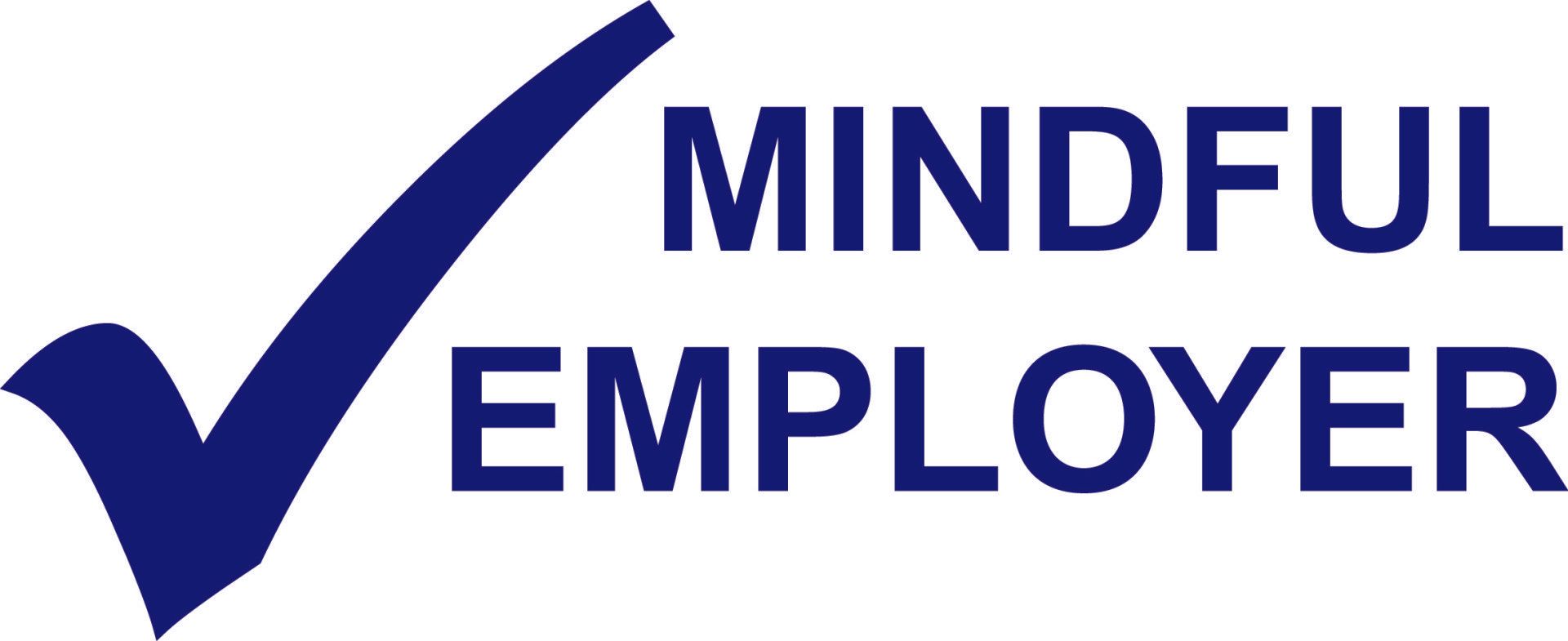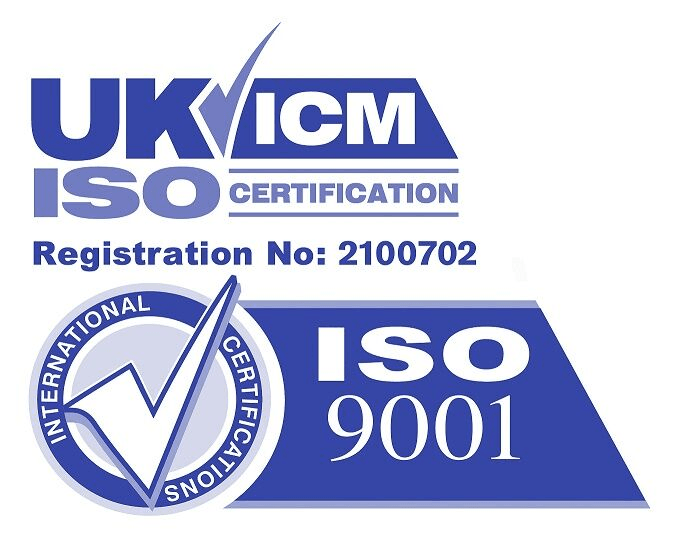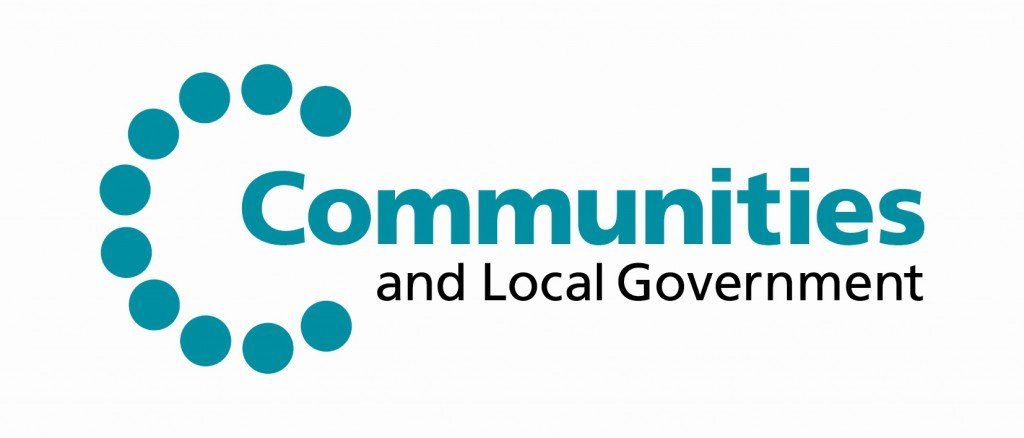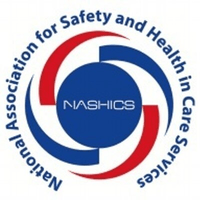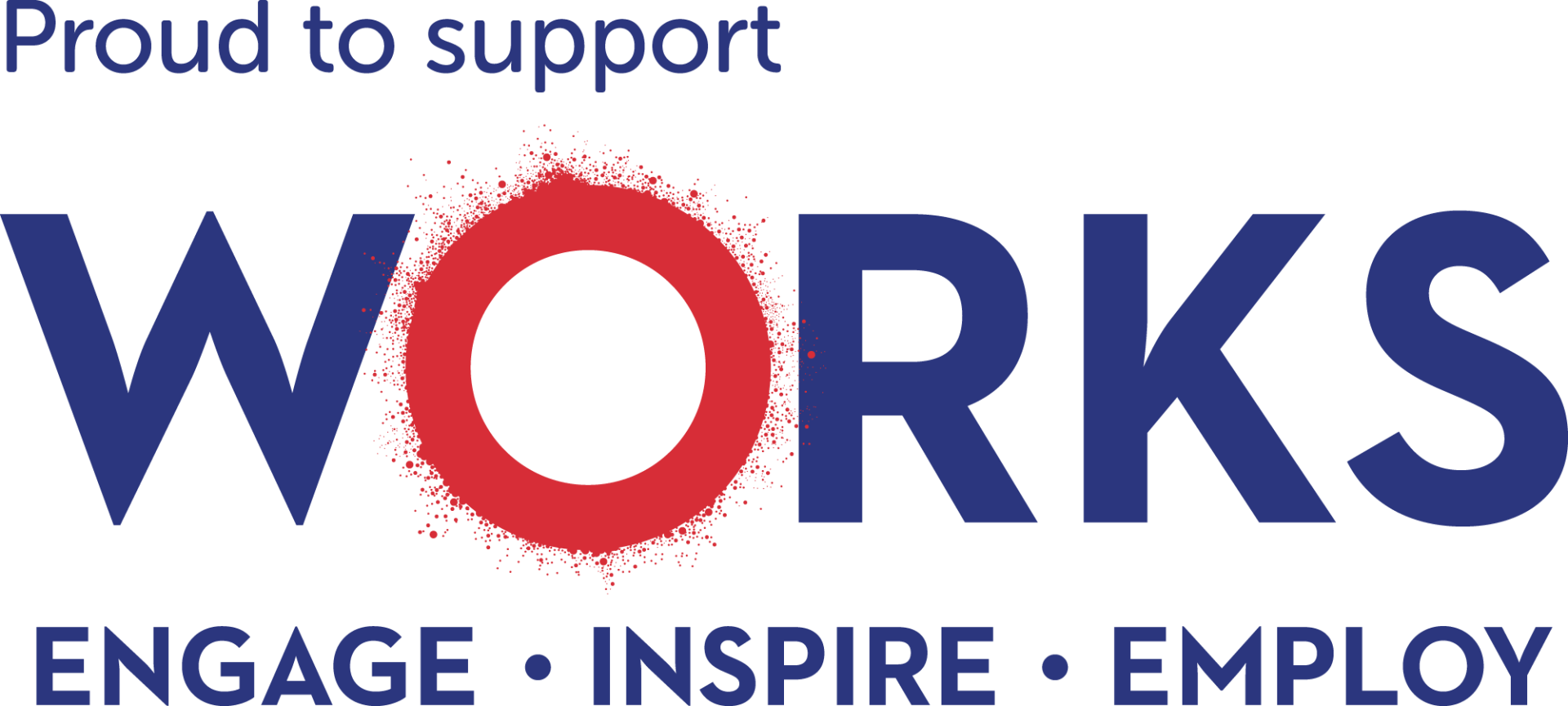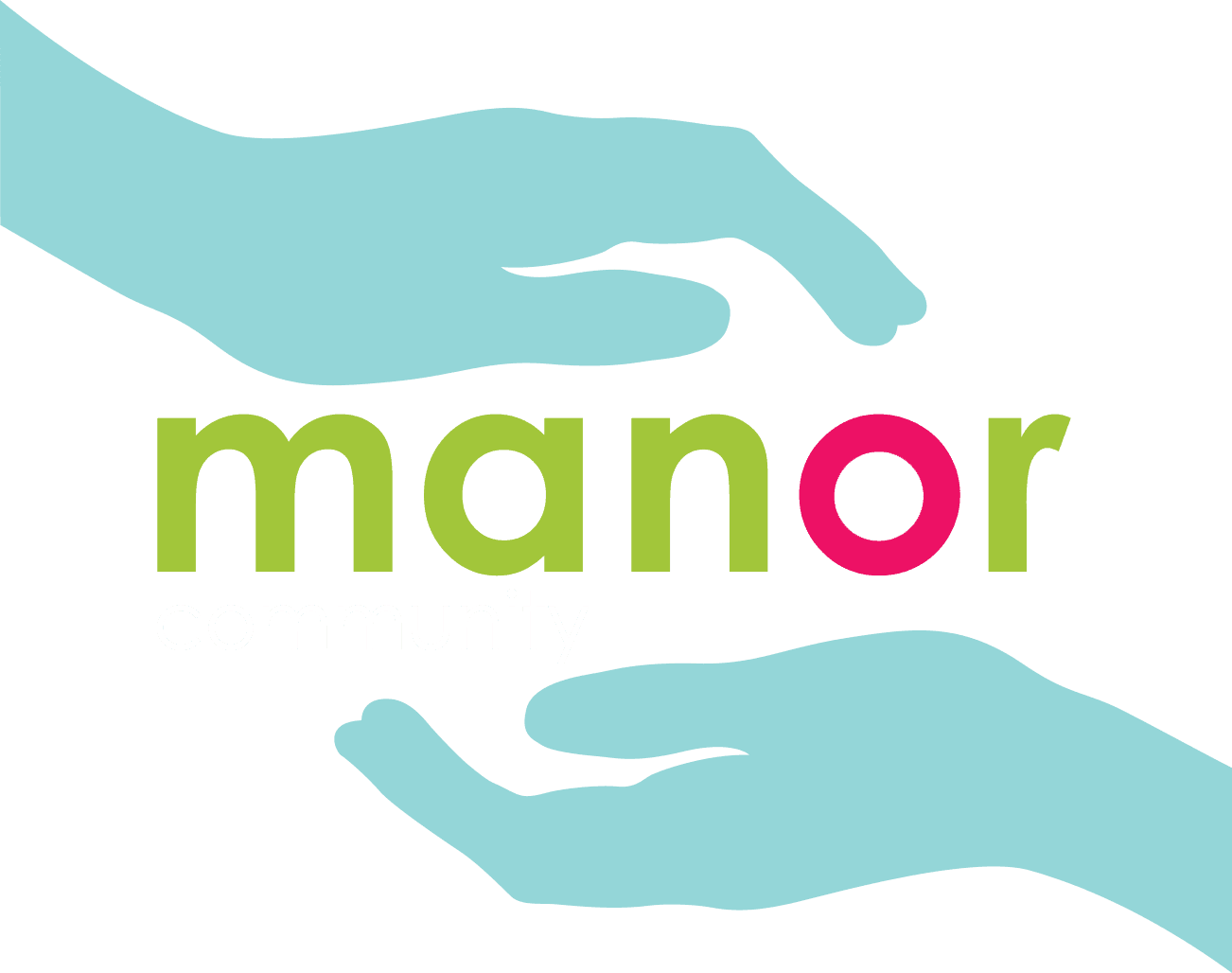Health+Care 2019 - Day 1 Summary
- By Sophie Chester
- •
- 27 Jun, 2019
Our summary of a packed Day 1 - in case you missed it
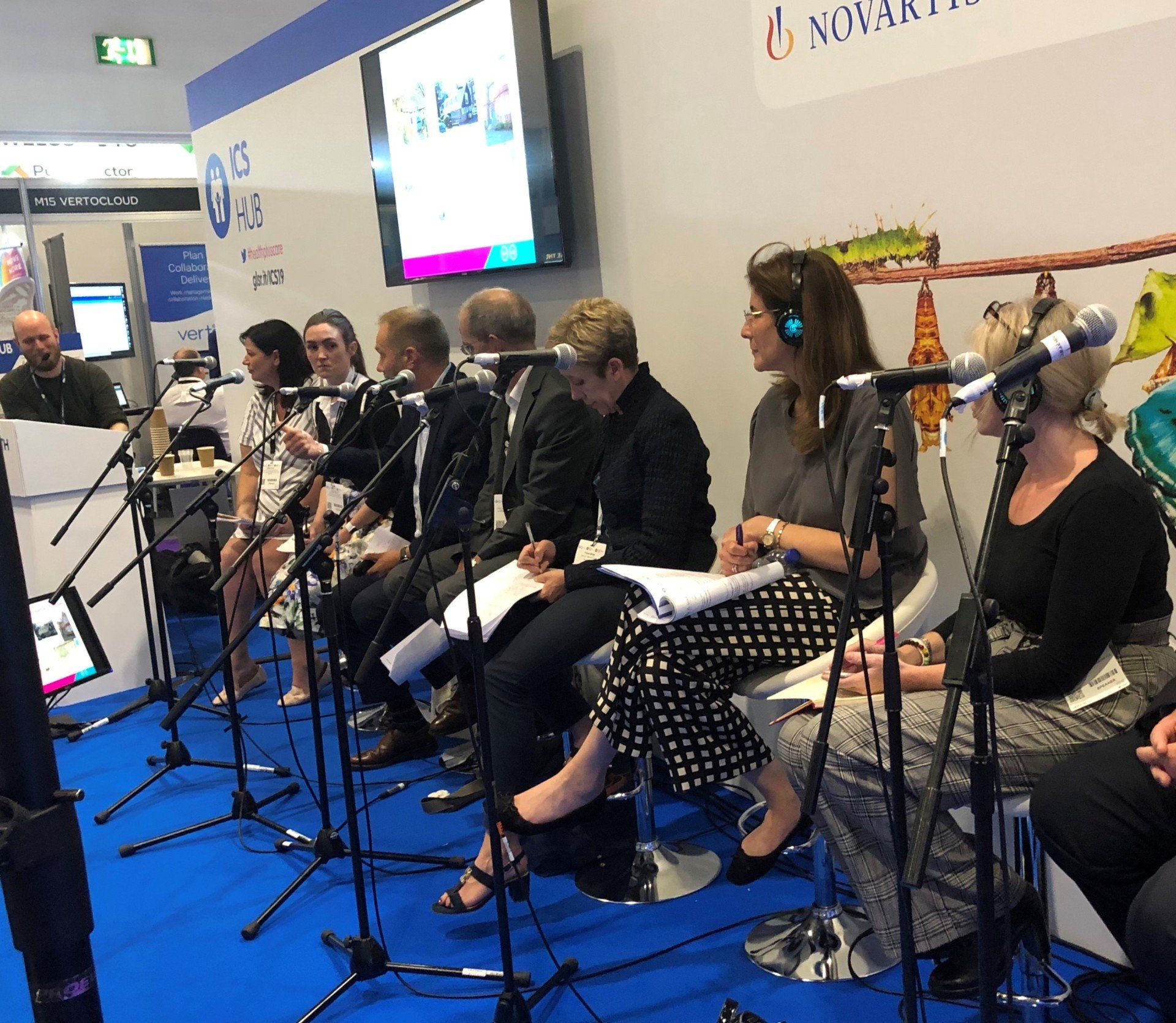
It’s the last week in June, so of course we’re back at the Excel in London for the Health+Care annual conference where professionals from local authorities, NHS, providers and government come together to present ideas, thought leadership and share local initiatives on improving the health and care sector.
Here is my assessment of the first day:
The main themes were technology, social prescribing and more technology. Both of which were being touted as enabling collaborative working and effective care, with the main challenge being changing embedded cultures and habits.
A note from the Minister of State for Health
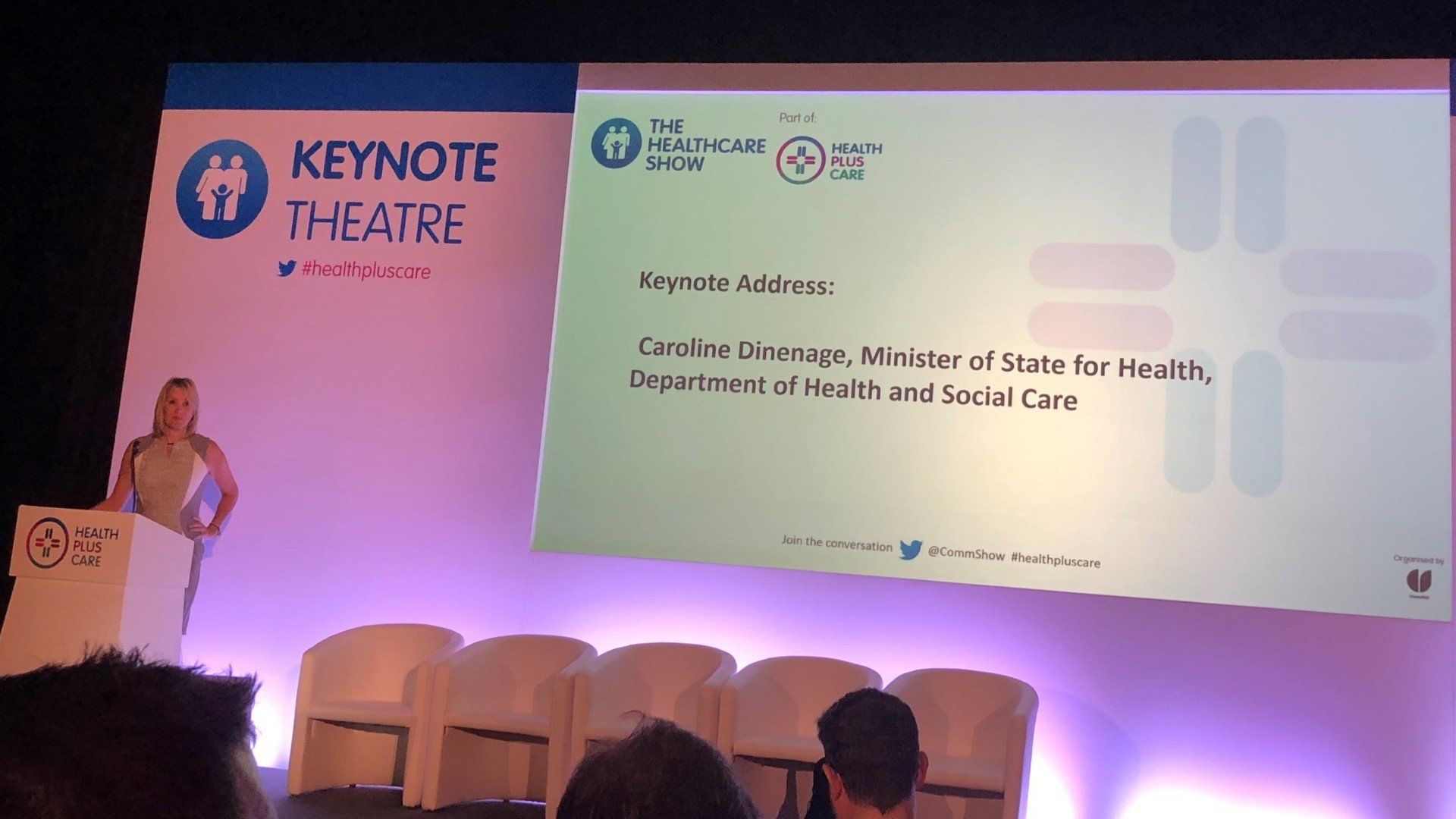
The day started off with a keynote address from Caroline Dinenage, Minister of State for Health, who used a great term to point out that health and social care are ‘umbilically linked’ and emphasised the need to ‘blur the boundaries’ between statutory, community and informal care through integration. A big fan of promoting local examples she explained the benefits of the community-based support group ‘Men Shed project’ – a voluntary group of men coming together to support each other through joint interests and DIY, with the knock-on effect of creating friendships and decreasing isolation. Her excitement over Integrated Care Systems (ICS) and technology, was countered by, what appeared to be an honest frustration at the delayed Green Paper on social care. Some key messages from her included:
- A report by Department of Health and Social Care (DHSC) on their vision for technology and examples of using HIVE or Centrica technology and smartphones to help monitor and interact with people in their own homes.
- A £5m carers innovation fund, officially announced this month, with the aim of providing 'support for the supporters' to enable carers to stay healthier and happier for longer themselves
Psychological Safety
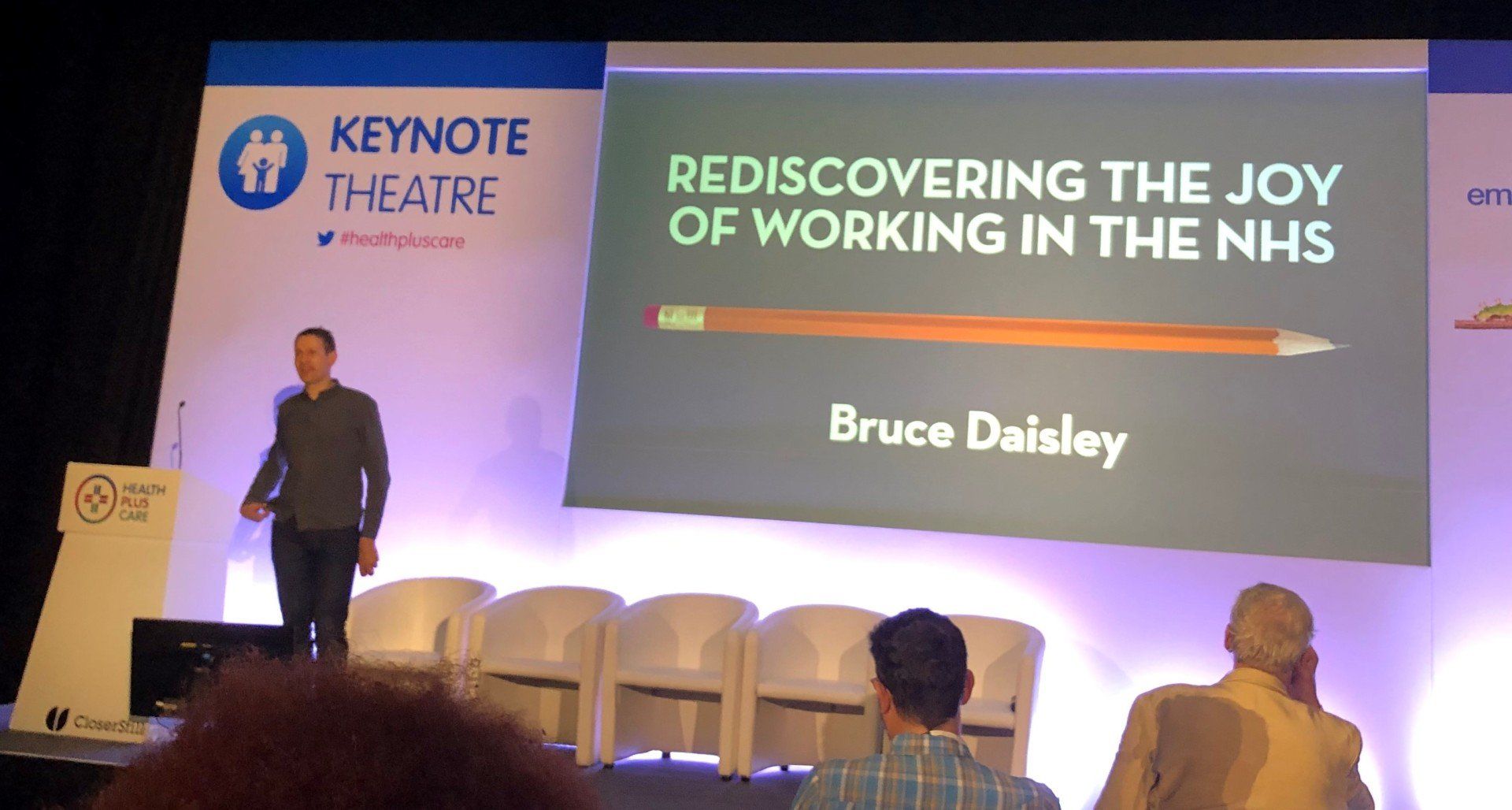
Lessons from integration - ICSs
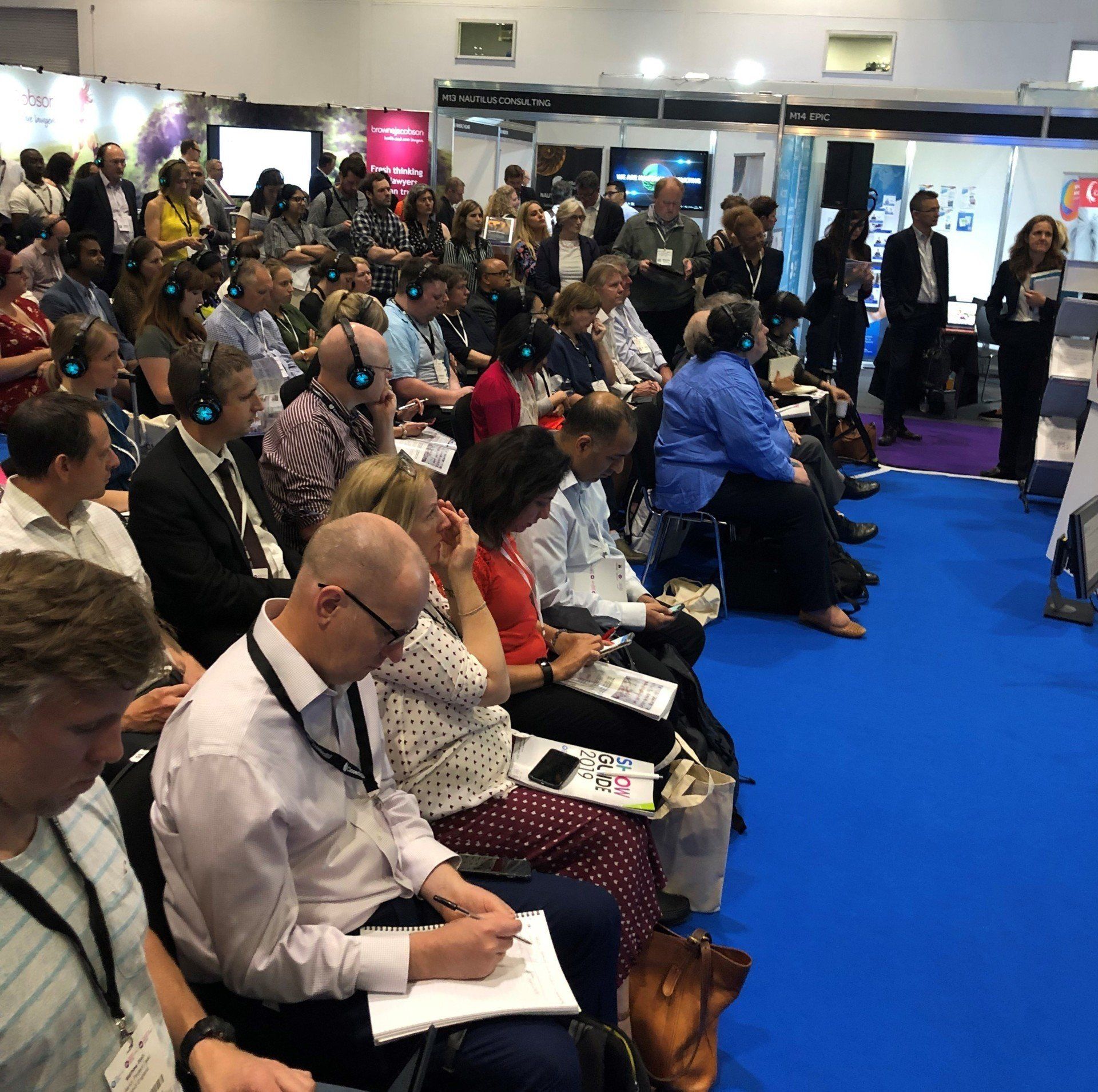
At the Integrated Care Services Hub, Henry Ireland from Imperial College Health Partners gave what he called ‘boring innovation points’ which were in fact not boring at all. He emphasised the need for transparency from all professionals within ICSs in order for them to work successfully. His points included:
- relationship building
- allowing entrepreneurialism within the team
- shadowing other professionals and
- spending time together
It got me wondering whether the material structures that have been deconstructed in an aim to save costs, such as losing joint working spaces in favour of home-working, have in fact contributed to making ICS operability more difficult?
Also part of this talk was Alan Davies, Director of Digital Health at NW Coast AHSN. It's worth checking out their website as Alan had some interesting reflections into how ICSs change staff behaviours and how, as pointed out by Dido Harding from NHSE, social care is critically poor at dealing with its customers in comparison to other sectors such as retail.
The Green Paper, Social Prescribing and the Social Value Calculator
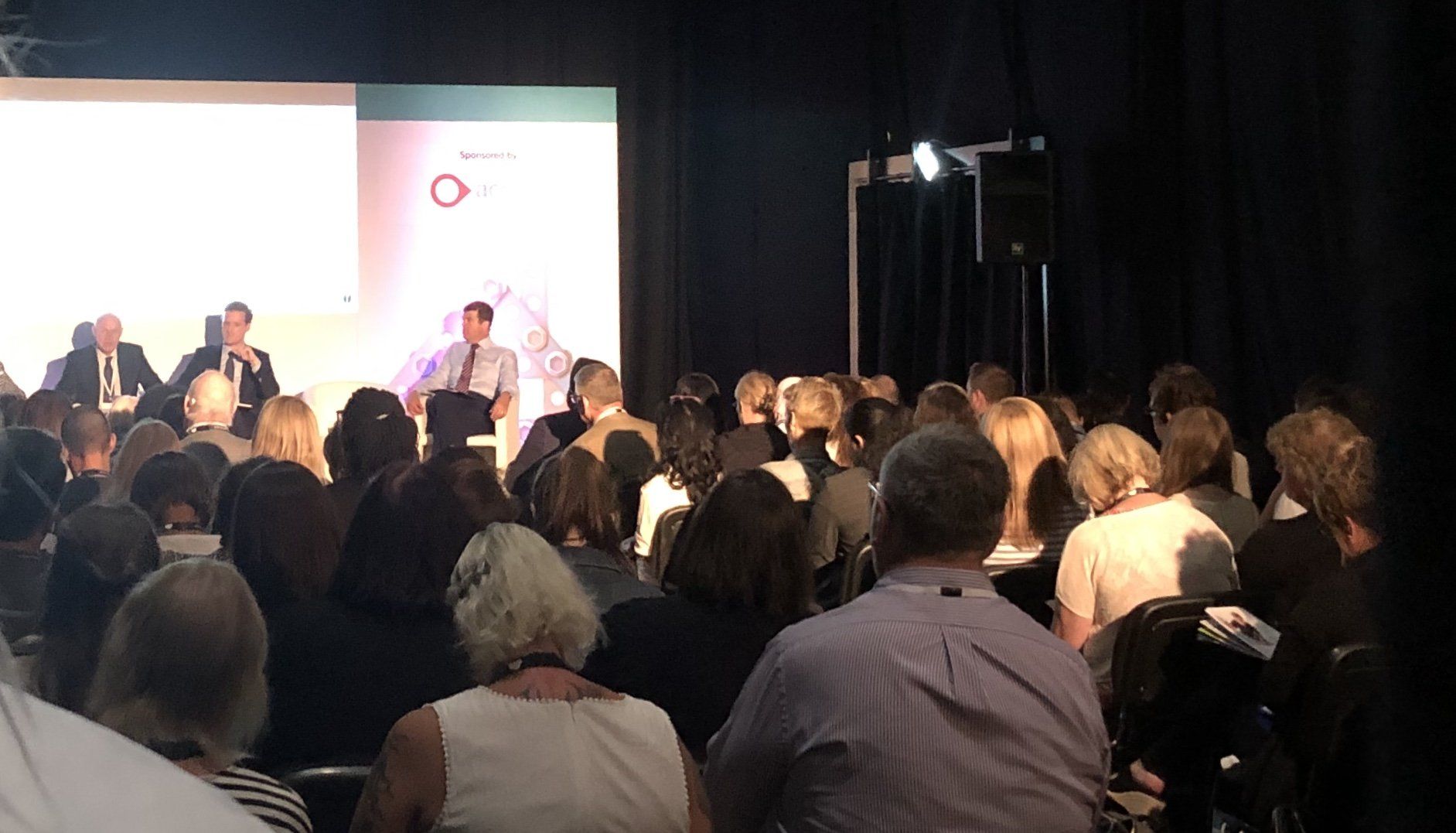
Just before lunch, the Residential Care Theatre became packed with care providers eager to get find out the future of social care. The panel consisted of Damian green, Michael Voges and Paul Burstow. Like Caroline Dinenage, Damian Green expressed frustration at the delayed Green Paper but argued that it required quality public debate which couldn’t happen in the current political climate and should include a cross-party solution. Interestingly, he claimed to favour a model of care funding based on a pension system model.
Even more interesting, Paul Burstow seemed to agree by suggesting a similar solution of an insurance model. Housing with care for Burstow was key, as well as self-directed care. He ended with the question of whether we actually need a Green Paper? In his view the sector has been extremely successful in solving the problems it faces by itself. He pointed out that the Care Act 2014 was a strong piece of legislation that simply needed more funding.
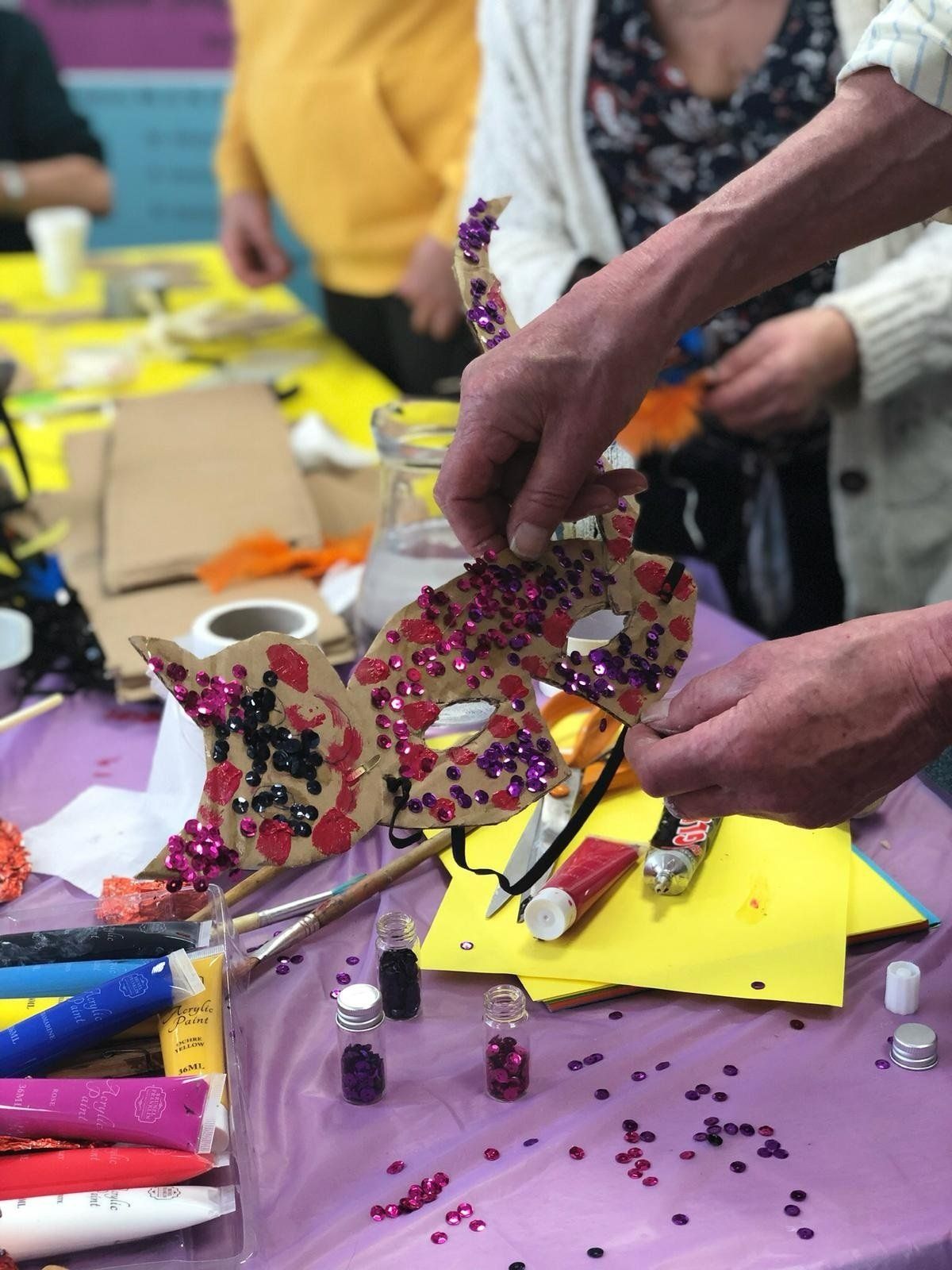
The afternoon started with an important message from Nicky Parker from Manchester City Council on new care models. She pointed out that representing social value was a growing trend for social care commissioning. So if you are tendering for contracts you need to have your organisation's social values policy locked down! In fact 20% of the overall weighting in marking tender submissions is now dedicated to provider's ability to demonstrate their social value impact. The social value calculator is becoming an increasingly popular tool for local authorities and worth getting to grips with. Local authorities are starting to require new providers to register and actively engage with this new product. This video gives a short synopsis from one company operating a social value calculator.
James Sanderson, Director of Personalised Care at NHS England (NHSE), gave an enlightening representation of transformation in action. Giving people using care services choice and control was key. He advocated the Comprehensive Model for Personalised Care. This included an operating model which comprised of
- Promoting shared decision-making between medic and patient (of which I’m a big fan)
- Giving people choice – he explained a process which seemed very similar to informed decision-making per Montgomery v Lanarkshire Health Board case
- Holistic care planning
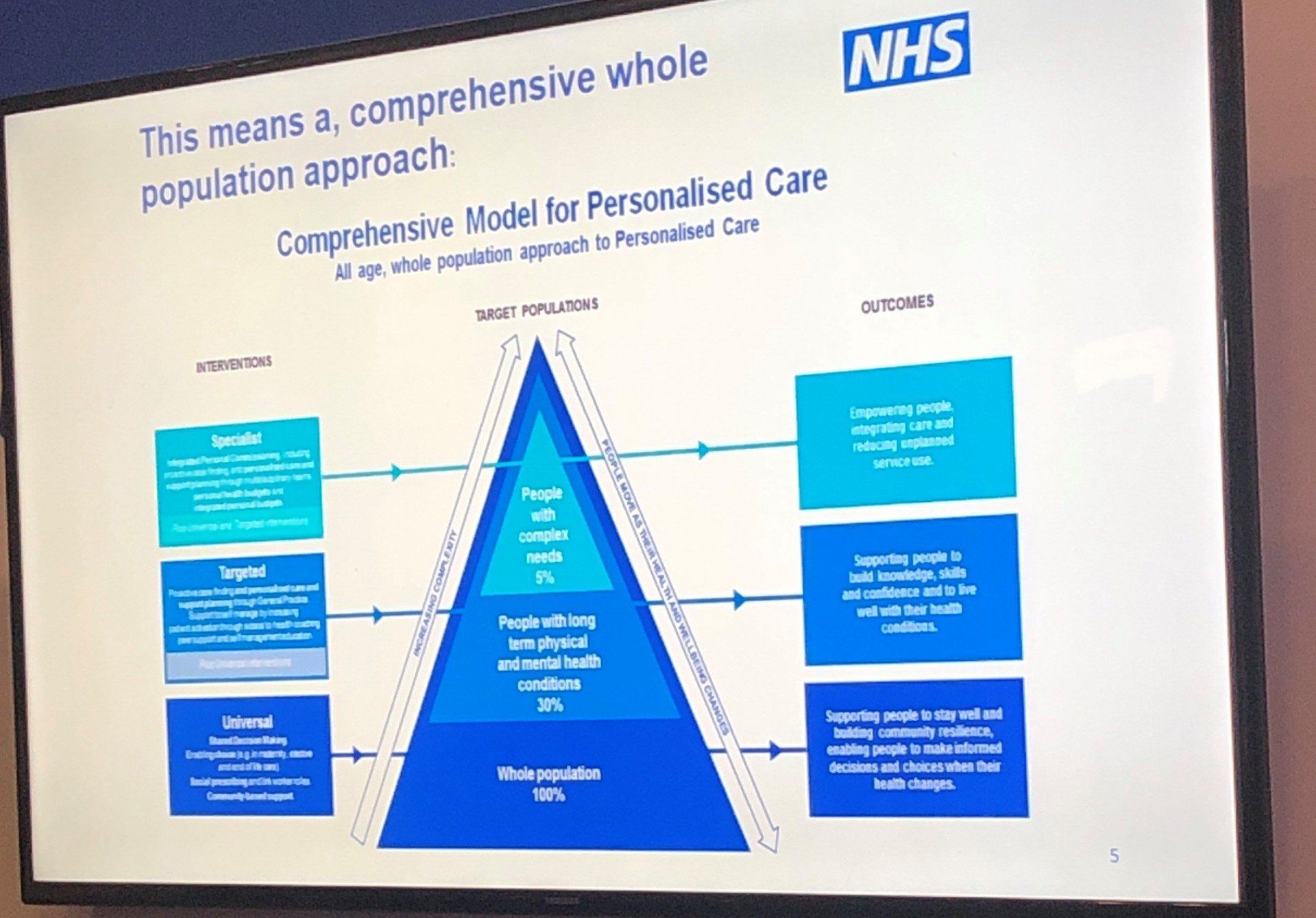
Continuing the social prescribing message, James was a great supporter, especially where it mirrored what was actually happening in the community. His 5 year plan included self-managed support (peer support, health coaching and PAM – Patient Activation Measurement) and being bold in relation to cultural change
Other highlights included:
- David Hambleton explaining how New Zealand's Canterbury model of ‘care alliancing’ means focusing on what is right for the patient rather than the system.
- Raina Summerson, CEO of Agincare, making the great point that private providers (arguably the cornerstone of current social care provision) are currently not invited to strategic discussions around the local development of Primary Care Networks (PCNs) and ICS developments. Something that fundamentally needs to change. A huge elephant in the room.
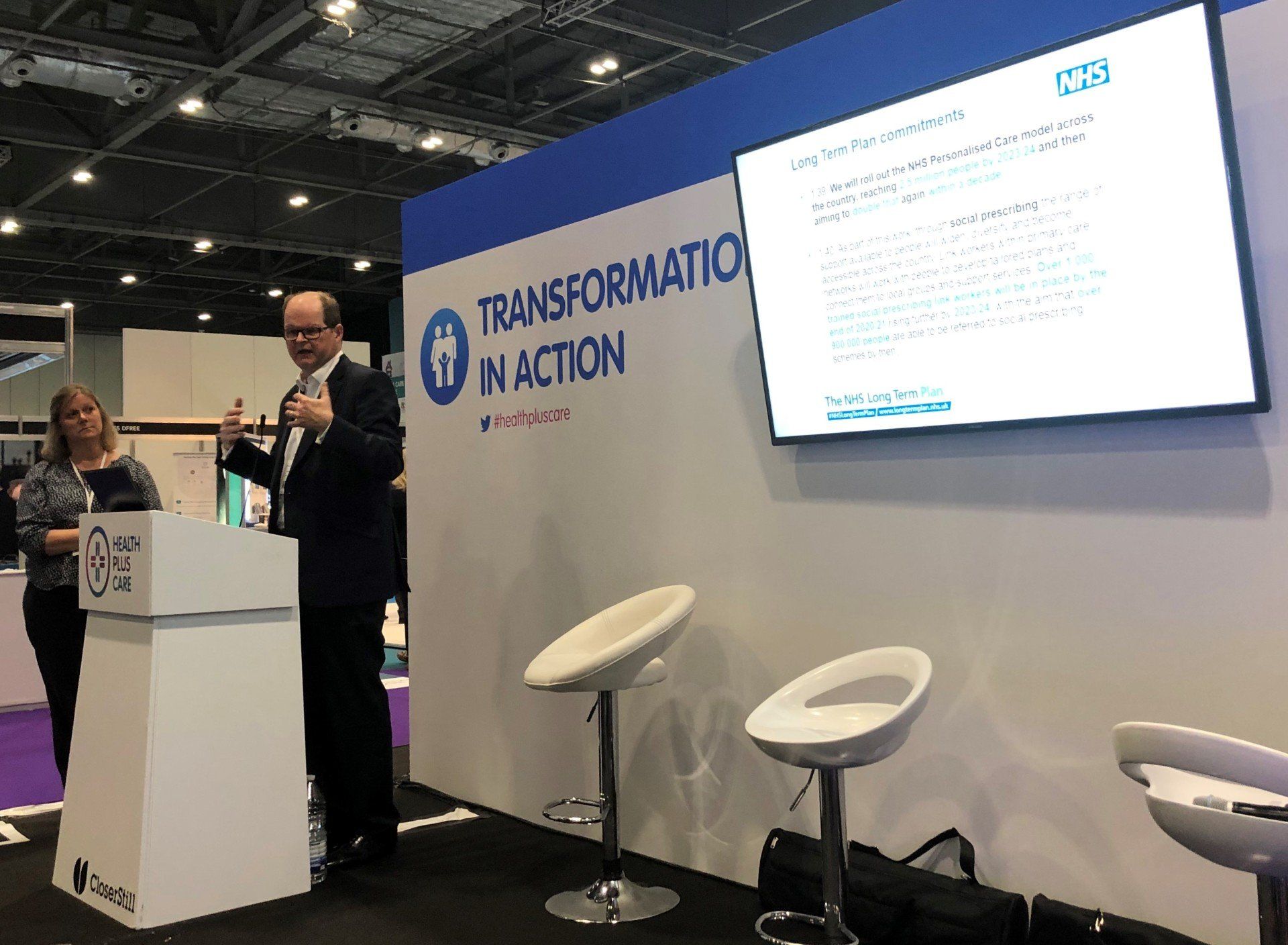
With a lot of hype around PCNs, my (rather lengthy) last question of the day was to Simon Chapman, Deputy Director for Personalised Care, NHSE. I asked:
‘when pushing for social prescribing, what happens when the community and VCS organisations are oversubscribed? Where does adequate funding come from to support them and how do we ensure that people do not fall through the net? Will the PCN's newly created Social Prescribing Link Workers have enough capacity?!’
His answer was ultimately - to be honest we don’t know. However, he did make the point that social care needs to look outside of its immediate periphery for funding support. Sport England for example are looking to fund projects that help people engage with physical activities, Matt Hancock is looking at creating a social prescribing academy and I later discovered that you can apply for the Evidence Generation Fund to support digital products.
A great first day, but still so many questions on the other, even larger elephant in the room, also known as funding. Hopefully insights to be had on day 2. Three of us from @manorcommunity attended the conference this year. All three will contribute to an updated post for day two, so keep an eye on our blog page.
ps. don t forget to look out for the launch of the ‘CARE BADGE’!!! ….
Latest News from Manor Community
Manor Community Blog

My name is Kanika Akinshegun.
I started at Manor Community In Jan 2025 as a HR & Recruitment Co-ordinator. I have been in recruitment for over 5 years, and I really enjoy engaging with people and helping them to make their next career choice. Often the candidate experience shapes the way a company is perceived, and I always work hard to ensure the first experience someone gets is a positive one. My aim at Manor Community is to ensure we employ the best people for our services, where caring comes naturally to them, in turn making the best experience for our clients.
Going forward I plan on working towards attending relevant recruitment events, with amazing merchandise, ensuring the recruitment is streamlined, cost effective and we plan to ensure we have the right people in place at the right time!
Outside of recruitment I have an 8-year-old son, and a cat called Sonic. I love art and paint on canvases using oil paints as a way of relaxing. I love working out and enjoy making up new workout routines to release those endorphins.
The best kind of recruitment is word of mouth so if you know anyone you can refer to me, please let me know!

Today, our residents were in for a special treat when a little puppy named Teddy paid us a visit! With his soft fur, big eyes, and wagging tail, Teddy quickly won the hearts of everyone in the room, bringing a wave of joy and comfort to our residents.
For many of our residents, it’s been a while since they’ve had the company of a furry friend, and Teddy’s playful energy was a breath of fresh air. As he trotted around, curious and excited, many of our residents couldn't help but smile and reach out to pet him. The simple act of stroking his soft fur seemed to lift their spirits and spark memories of their own beloved pets from years ago.

What seems like an age ago now I first got interested in working in the social care sector working with adults with learning difficulties in the land-based industry. Right from the start I could see the benefits this sector has mainly, obviously to the individuals using a service – improving knowledge, confidence and having a purpose to get up for. After many courses/qualifications and throughout the decades I pursued this sector, again working with adults and young people in different settings including residential and supported living, not only in the land-based sector but supporting people in their communities.
Fast track to the present day and Manor Community. I have been working for Manor for roughly seven years, with a slight hiatus after four years, believe me the grass isn’t always greener. Today my passion for helping people with learning difficulties and mental health issues remains the same, albeit there have been some knocks and falls but after self-reflection and kind words of encouragement you get up and carry on.
Presently at Manor I have progressed through the ranks as a senior. I was thrilled to get the role as it shows that I’m valued within the company. No two days of my working week are the same, I could be completing audits or assisting colleagues with their work one day, to supporting individuals for appointments and social scenarios or pulling my hair out trying to get through bureaucratic (external agencies) red tape ensuring individuals are treated as equals. Occasionally I go home frustrated, but more often I go home satisfied I have made a positive difference to someone’s day.

Continuing our feedback series, we are delighted to shine a well-deserved spotlight on the incredible care workers who make Manor a truly special place. At Manor, we believe that every member of our team plays a vital role in creating a supportive and nurturing environment for our residents. Our care workers are at the heart of this effort, working tirelessly day and night with unwavering dedication, compassion, and skill. They go beyond just providing care—they build relationships, offer comfort, and ensure that each resident feels valued, respected, and safe. Their efforts create a warm and welcoming atmosphere where families can feel at ease, knowing their loved ones are in the best possible hands.
